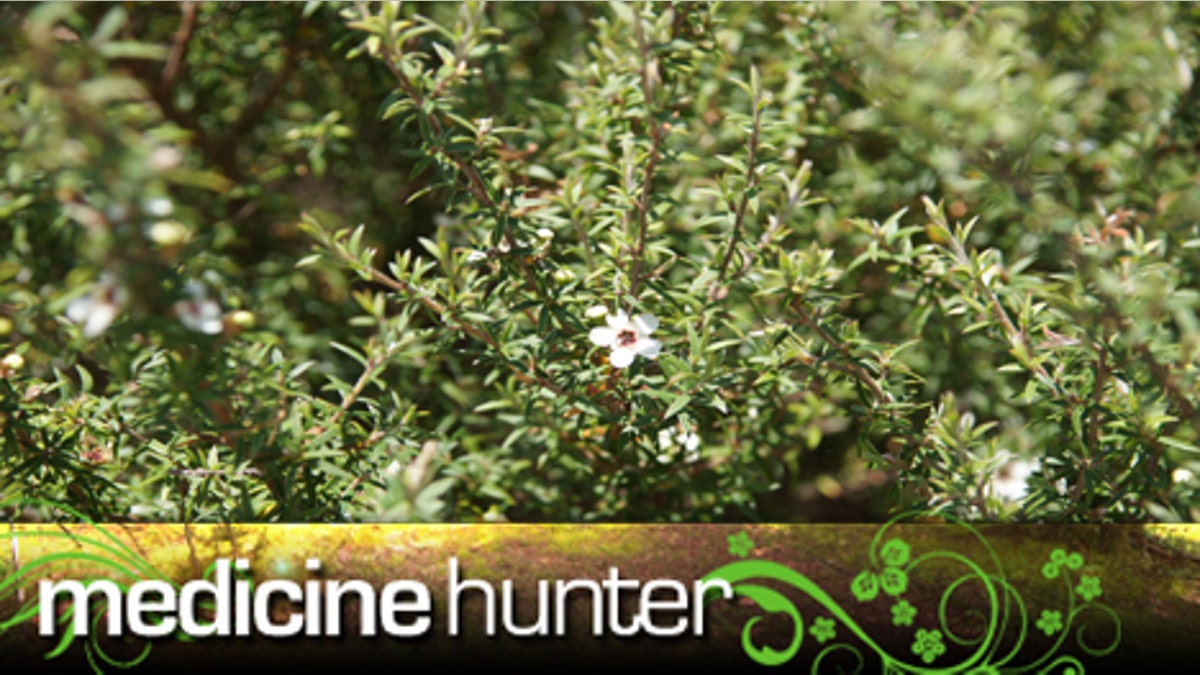
SONY DSC
Recently while traveling in New Zealand, I had the opportunity to learn more about a remedy that derives from a plant native to that country. Manuka honey, made from the collected nectar of the plant Leptospermum scoparium, is a widely employed, well studied topical aid for a variety of wounds, burns, cuts, infections and other skin problems.
Honey has been used for many years in beauty, medicine, and embalming, due to its aseptic composition. Bacteria cannot grow in honey, and thus it is excellent where bacteria may otherwise flourish. But manuka honey goes far beyond other honeys, actually sending out specific agents that fight bacteria and inflammation.
To make this special honey, beekeepers set their hives in areas rich in the native manuka plant. The bees gather nectar and pollen from the large green manuka bushes, and this adds up to a medical honey.
In New Zealand, and now in other parts of the world, “medical manuka honey,” is used on intractable burns and other wounds that do not respond well to other therapies. In the U.S. and the U.K., the medical supplier MediHoney provides manuka honey-impregnated bandages, as well as manuka honey creams, lotions and gels, for use in medical offices and hospitals.
I spoke with Dr Ralf Schlothauer at Comvita, New Zealand’s largest supplier of medical manuka honey, about what makes this honey so unique. According to Dr. Schlothauer, true medical manuka is sold with a “UMF” label, a seal that the honey contains what is known as “unique manuka factor.” Schlothauer said that unique factor is a concentration of antioxidant phenols that inhibit bacterial growth. Medical manuka honeys vary in UMF concentration, from as low as 5% to as high as 20% UMF.
Additionally, according to papers published in both the journal Food Chemistry and the journal Immunopharmacology and Immunotoxicology, manuka honey contains novel proteins known as arabinogalactans, which appear to enhance immune activity at wound sites where manuka honey is applied. Further studies have shown that application of medical manuka honey to wounds causes the release of anti-inflammatory cytokines.
Dr Schlothauer, and other researchers with whom I spoke, described the ability of medical manuka honey to arrest grave cases of infection. In several documented instances, patients headed for limb amputation were able to be spared the surgery after treating infected wounds with medical manuka honey. Diabetic ulcers, venous leg ulcers and infections due to serious injury have all responded well to the honey’s treatment.
Burns, which often take a long time to heal, respond more quickly to medical manuka honey treatment than to treatment with other topical applications, resulting in the formation of new, healthy skin tissue. For this reason, medical manuka honey is a regular part of burn care in New Zealand hospitals.
Medical manuka honey is a good example of how a natural remedy can travel from traditional cultural use along the road of high science to modern medical application. Manuka honey is a remedy originally used by New Zealand’s native Maori as part of their indigenous medicine. From that beginning, scientists have analyzed the honey to identify its unique properties, and have determined how medical manuka honey acts as an anti-infective, and how it fights inflammation.
Medical manuka honey is not so well known in the US at present. But with a growing body of science and an excellent track record of use for tough skin problems, this therapeutic aide will undoubtedly become more popular over time. In addition, medical manuka honey is showing up in some cosmetic lotions and creams as a beauty aide. For medical manuka honey, the future appears bright.
Chris Kilham is a medicine hunter who researches natural remedies all over the world, from the Amazon to Siberia. He teaches ethnobotany at the University of Massachusetts Amherst, where he is Explorer In Residence. Chris advises herbal, cosmetic and pharmaceutical companies and is a regular guest on radio and TV programs worldwide. Chris is the author of 14 books, including Hot Plants, Tales from the Medicine Trail, Kava: Medicine Hunting in Paradise, The Whole Food Bible, Psyche Delicacies, and the international best-selling yoga book, The Five Tibetans. Richard Branson features Chris in his new book, Screw Business as Usual. His field research is largely sponsored by Naturex of Avignon, France. Read more at www.MedicineHunter.com.
